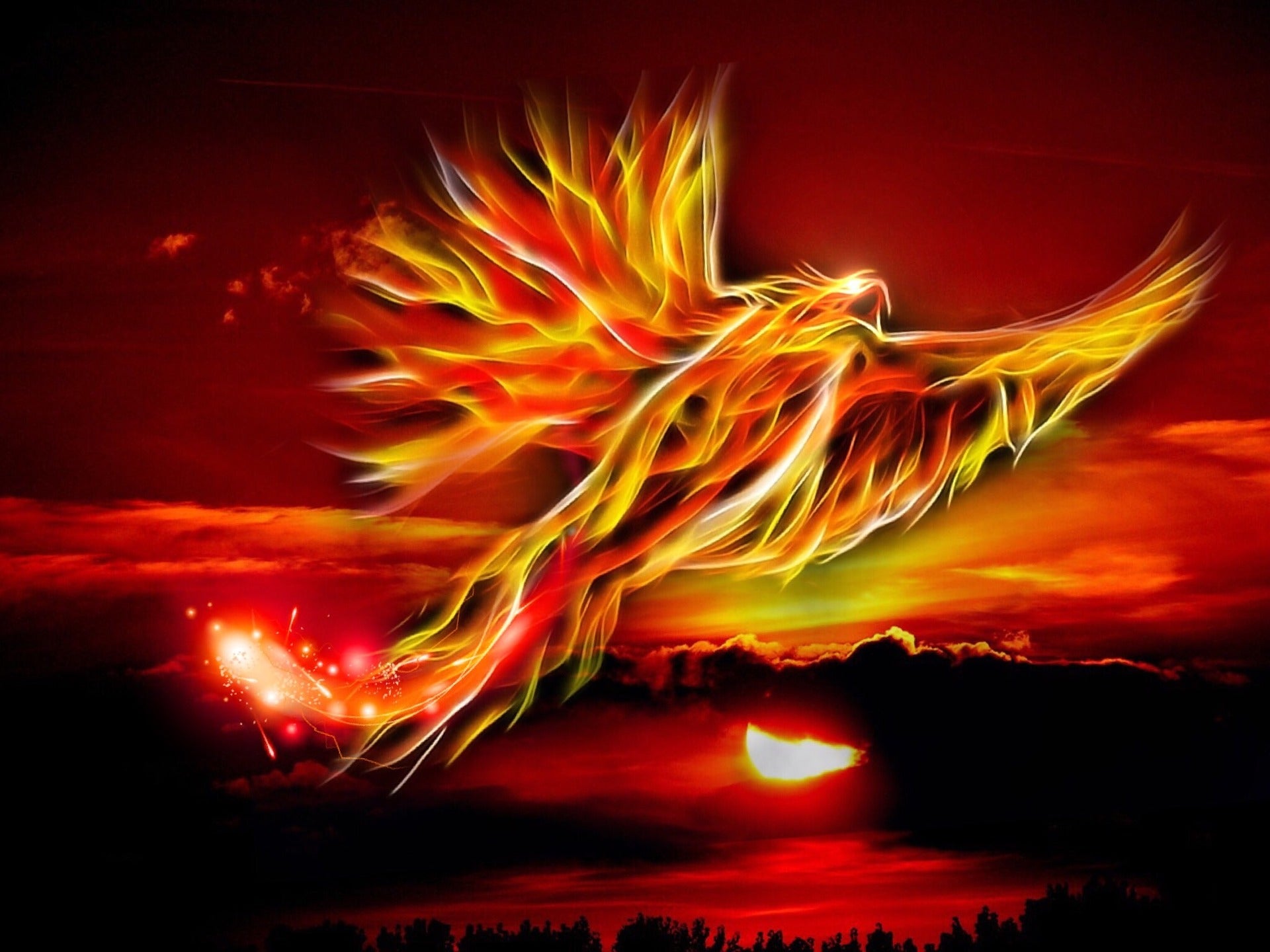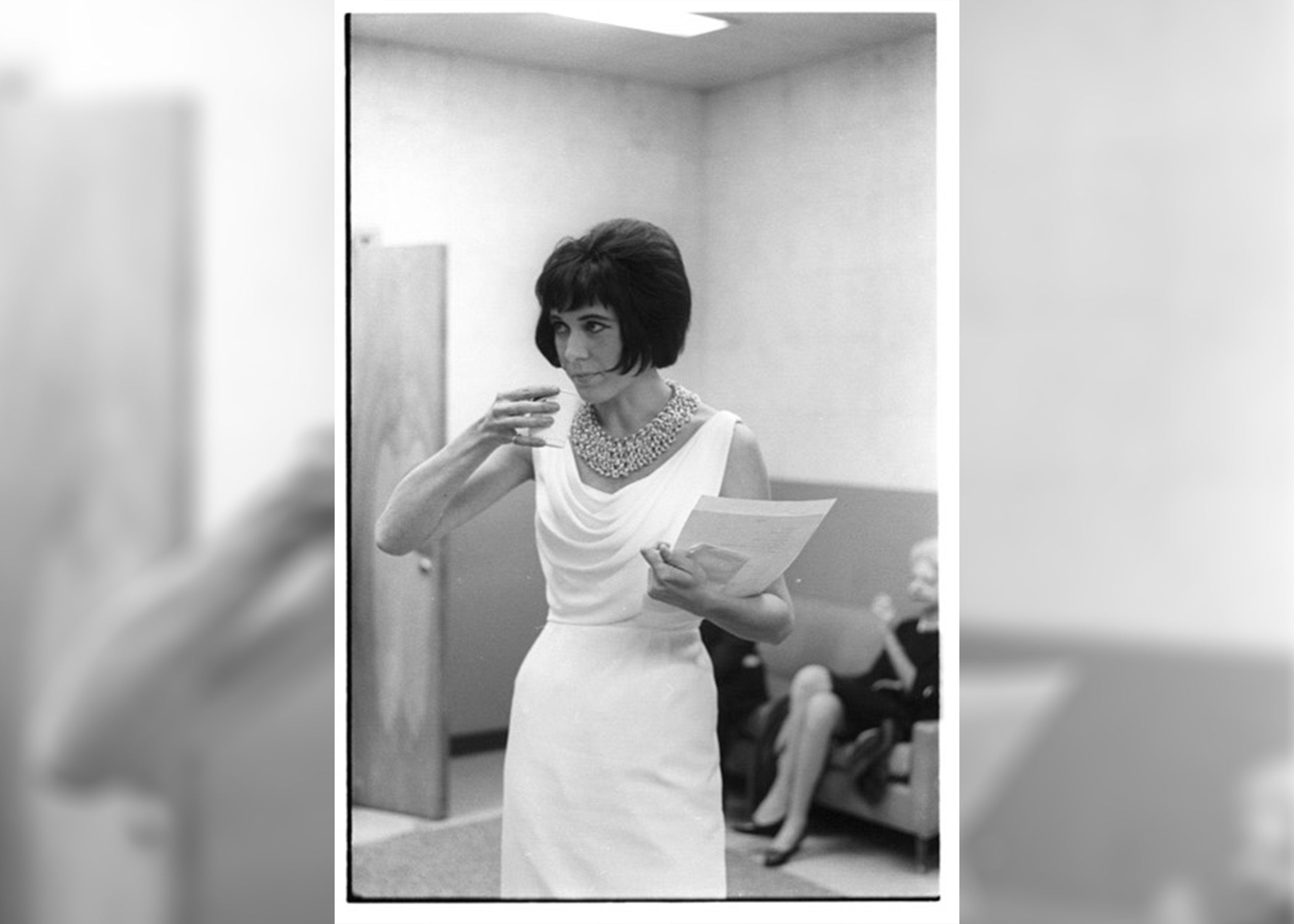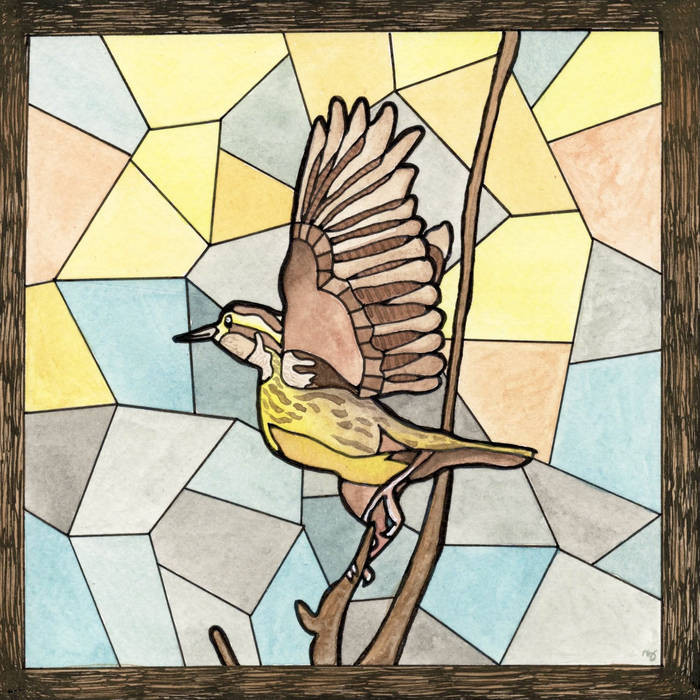Celebrity chef Roy Choi serves up a menu of social conscience with his documentary series, “Broken Bread.” Plus, musician Andrew Bird talks about his finest work yet and MacArthur Genius writer Karen Russell shares stories from her new collection, “Orange World.”
Featured in this Show
-
Chef Roy Choi Is Finding Hope Through Food
When celebrity chef Roy Choi was 24, he was a law school dropout with a checkered past. He was feeling aimless and confused. Lying on the couch in his West Los Angeles home, he had an out-of-body experience. The “Essence of Emeril” TV show came on and it sparked Choi’s epiphany.
“I just knew that cooking was going to be my last hope,” Choi tells WPR’s “BETA.”
That moment proved pivotal to a career that has been so decorated, celebrated and varied since. To Choi, he feels like it might have been even more.
“That moment saved my life,” Choi said. “He physically didn’t save my life, but through the television screen, he did.”
Choi would enroll in culinary school at the Culinary Institute of America and become a rising star as a hotel chef in L.A., climbing as far as chef de cuisine at the Beverly Hilton. However, it was Choi’s next chapter that would catapult him into the ranks of distinguished chefs.
In 2008, Choi launched his company and Korean BBQ taco food truck, Kogi. It completely pioneered the current food truck craze. Kogi began as just a way for Choi and his friends to make a few extra bucks outside of the L.A. nightclubs, but grew into something far more substantial.
“If Emeril’s show found me a path, Kogi — 20 years later — allowed me to really find out my purpose of how to feed people,” Choi said.
Choi was named Food and Wine Magazine’s “Best New Chef” and fellow chef/TV personality Anthony Bourdain said Choi “changed the world when he elevated the food-truck concept from ‘roach coach’ to highly sought-after, ultra-hot-yet-democratic rolling restaurant.”
“When Anthony Bourdain mentions the word ‘roach coach,’ a lot of food trucks and street vendors were looked at a very racist way and a very prejudicial way,” Choi said. “I don’t think the trucks and the food before us changed, it’s just America’s perception of them changed through the process of Kogi.”
In 2014, filmmaker Jon Favreau would make the cult-hit “Chef” loosely inspired by Choi’s career and life. To pull off the mouth-watering cooking scenes in the film, Favreau enlisted Choi as his technical advisor on set.
“He just needed a technical advisor, just like if it was a boxing movie, he would need like Teddy Atlas to teach him how to box,” Choi said.
Now, Choi and Favreau have reunited on the Netflix documentary cooking series, “The Chef Show” that revisits the popular recipes from the film and highlights their long-standing friendship.
“Jon and I really love hanging out with each other and when the movie ended, it felt like summer camp was over,” Choi said. “We searched for reasons and situations where we could continue to hang out and then he brought a camera one day.”
Choi is also headlining the far more personal docu-series, “Broken Bread” (a co-production of KCET and Tastemade). The series (which can be streamed at brokenbread.tv and the PBS app) spends each episode exploring or grappling with social issues like homelessness, recidivism, hunger and sustainability through the lens of food.
“Really, the purpose of the show is to find that balance between entertainment and something to make you think and something to make you care,” Choi said.
The show also positions Choi as the spiritual, if not logical, successor to the late Bourdain. Choi spends each episode not just introducing you to the next great, innovating chef or restaurant, but outlining how their work weaves into the community and measures its impact.
Take, for instance, the episode “Transformation” which features Mar Diego, who opened the pizza shop, Dough Girl, in the valley neighborhood of L.A. She only employees at-risk or homeless teenagers.
“She brings them into the shop and gives them jobs and training and the whole shop is run by these kids that would be sleeping on the streets, but now have a job, have a paycheck,” Choi said.

Chef Roy Choi with Dough Girl’s owner Mar Diego Photo courtesy of KCETWith a full arsenal of street cred and celebrity, Choi is uniquely able to secure access to local community leaders in Watts as easily as he can sit down with the mayor of L.A. This offers a wide picture view of some of the problems plaguing society and Choi’s belief that food (and more importantly food jobs) can provide the same glimmer of hope to society that it did for him.
“What we try to do through the show is show that the problem is huge, but the solution is closer than you think,” Choi said. “You just have to make these conscious choices.”
-
Andrew Bird Tells Sisyphus To Let The Rock Roll On His Latest Album
The cover art for Andrew Bird’s latest album, “My Finest Work Yet” shows the singer-songwriter transplanted into Jacques-Louis David’s 1793 painting, “The Death of Marat.”
In the image, Bird holds a note with the words: “Such avarice. Such industriousness. Such creative zeal and gusto. All towards the end of doing the wrong thing. Treachery. Treachery. Treachery.”
The singer-songwriter and classically trained multi-instrumentalist has been crafting delicately-layered indie-folk music since the early 1990s, much to critical acclaim. Bird, also an expert whistler, was featured in the 2011 movie, “The Muppets,” and provided musical scoring for comedian Zach Galifianakis’ television show, “Baskets.”
“First I had the album title, and I was looking for an image that would maybe overplay that to the point of humor. I was thinking, ‘The suffering poet on his deathbed breathing his last breath, penning his final words,” Bird said of the cover art.
When WPR’s “BETA” host Doug Gordon asked Bird how he would want listeners to interpret the hand-written words on the album’s cover he said: “Sometimes when people have cognitive dissonance about what’s right and what’s wrong, they approach the wrong thing with extra zeal. Which is sometimes what I see happening these days.”
This is Bird’s 15th studio album and he described it as his, “reaction to being alive at this time … this one is a little more geopolitical or social in what I’m addressing.”
Bird said it took him some time to find the right vocabulary to write songs about current events.
Here are Bird’s own words from the “BETA” interview as he described the motivations behind a few choice tracks from the new album.
These interview highlights have been edited for brevity and clarity.
Sisyphus
Sisyphus was the Greek king who got in trouble for cheating death and he escaped from Hades. Zeus found out and sentenced him to an eternity of pushing a rock up a hill. You hear (this myth) a lot referenced in TV shows. There seems to be something happening in the zeitgeist with that myth these days.
I focus on the moment when Sisyphus gets to the top of that mountain and actually feels like he might have a choice. Either he’s going to jump and end the struggle or let the rock roll down. And I imagine, “Who’s down there when the rock rolls down. Is there a village that’s getting destroyed?”
He’s in a quandary: “What’s my responsibility to the community at large? I know this is not serving me as an individual.” The second verse is, “I’d rather fail like a mortal than flail like a god.”
The whistling melody started out as the melody for “Bloodless.” Early on (in recording the album) the melodies are not very faithful to any one song. Sometimes they get snubbed; which is what happened with “Bloodless.” It got kind of crowded in there and (the melody) jumped to “Sisyphus.” And if you whistle that melody over “Bloodless” it works just as well. And that’s why an album hangs together sometimes thematically. If it sounds familiar later on in the record, it’s because they used to be in the same song together.
Bloodless
I’m talking about how there’s a lot of money being made in divineness. It was written between the 2016 election and Charlottesville, (Virginia). I felt like I had to say something. It’s all tendencies that have been there for centuries in civilization. It’s just in the last 10 years it’s been amplified.
Twenty years ago or so there was talk of family values in the context of this idea of morality being a set thing. And now I feel like everything’s turned upside down. Maybe we’ll be looking to our rock stars now for our moral compass. But you have to believe in times like these that there is a right and wrong. I didn’t always feel like I had to choose sides before, but now there’s very clearly something wrong going on. And that’s why this album has a certain urgency that I haven’t really felt before.
Manifest
It takes a broad view of what fossil fuels really are. There’s something kind of poetic, though frightening, about the whole thing. There’s this thing that was once alive that dies, and some of its carbon energy is still contained even though it’s dead. And then it gets compressed underground, and then millions of years later it gets pulled out of the ground and put into an engine … and the vapor escapes into the atmosphere. But we’re taking that last bit of energy from that once living thing.
I feel like if I lay things out in this way, yeah maybe you’re not going to change any minds … but can you really argue with what I’m saying?
Recording The Album
Bird told “BETA” he was looking for a natural, spacious sonic quality when he was recording the album, which was mostly recorded live in one room, with minimal separation between instruments, and no headphones were used.
“So I’m playing, singing in the room with the drums … and they’re six feet away from me. And they’re getting in my microphones, and I’m getting in everyone else’s microphones … and you just have to make that not sound like a mess,” Bird said.
“My favorite period of recording was 1958 to 1962 … jazz records that were made in that time … the (Rudy) Van Gelder recordings and the Verve records. Nina Simone, Herbie Hancock … that was my template for this, sonically. That jazz to pop to gospel thing that was going on, pre-Beatles. What I love about those recordings is you can hear the room.”
When asked if he thinks this is actually his finest work yet, Bird replied, “Sure. I’ve said that before, which is part of the joke. The last word (in the album’s title) is ‘yet.’ So it’ll be tough to name the next record.”
-
Karen Russell's Short Stories Explore The Supernatural In Our Natural World
Karen Russell is a MacArthur Foundation genius. Her novel “Swamplandia” was a Pulitzer Prize finalist. Now, she has a new collection of short stories, “Orange World.” Her stories are often surprising and surreal and many of them deal with nature and the physical world.
“You know, it’s a funny thing with a collection,” Russell told WPR’s “BETA.” “I think for the first couple stories, you’re just kind of rediscovering what your preoccupations are. And part of the thrill of kind of working on stories over this kind of long stretch of time is you start to see what notes recur and then you can kind of consciously build out these connections.”
So much of Russell’s fascination with the natural world is a result of being born and raised in Florida.
“There’s a picture of my siblings and I watching this albino peacock walk down our stree,” Russell said. “This was just like a normal occurrence. We lived right by the water and we lived by this mangrove estuary that we called ‘the muck.’ And what was exciting about that place as a kid, it was like a little swamp in microcosm, sort of. But totally liminal place, very unclear where the land ended and where the ocean began. And our neighbor had kind of this muddy canal running behind his house, which you know, as a mother now, it would terrify me to let my kids play by.”
Most of the time when Russell is creating a short story, it’s the setting that comes first.
“I think maybe in my first collection (“St. Lucy’s Home for Girls Raised by Wolves“), there are a few more stories that begin as kind of ‘What would happen if?’ counterfactuals,” Russell said. “But really I think I need to have some sense of the landscape before I feel comfortable starting anything. I mean, even before I know the characters. Sometimes I need to kind of have a sense of, you know, what setting am I going to cordon off in this particular story? What’s the world going to be?”
One of the eight stories in “Orange World” is called “The Bad Graft.” It was inspired by the myth of Daphne and Apollo from the Roman poet Ovid’s Latin narrative poem, “Metamorphoses.”
“So Apollo chases Daphne and she makes this kind of cruel existential bargain where she survives but it’s by becoming a tree, which just felt very resonant to me as kind of a strategy that many people use, if you want to extend the metaphor to what we see people do kind of after, when they’re threatened, when they’re traumatized,” Russell said.
Russell wanted to reverse this myth and imagine what it would be like if a tree made a leap into a human woman. She was thinking about this idea for a while before she went on her first date with her now-husband to Joshua Tree National Park in Southern California.
“I just felt completely resized and terrified in a wonderful way by the desert,” Russell recalled. “I had never seen this particular desert before. And I thought it was thrilling.”
Russell described the story as, “kind of a love triangle between a very young couple that are on a road trip. They think that they’re going to be vagabonds and wanderers. And then on this trip, the girl pricks her finger on a Joshua tree, there’s this uncanny merger, she is infiltrated by the plant’s spirit, and the story proceeds from there.”
“The Gondoliers” was one of the most challenging stories for Russell to write. She said that working on it nearly broke her because she was committed to the wrong trajectory and the wrong point of view for a while.
“But the world of the story has always been the same. And it’s a drowned South Florida in a nearish future. And it’s told from the point of view of one of four sisters,” Russell said. “They’re sort of these mutant women who have evolved and consciously evolved this ability to navigate the canals of this new Florida by echolocating. So they sing and the echoes of their voices return to them kind of a map of submerged objects and obstacles. And they’re able to sort of anticipate what the river is going to do next and move with it. I love the idea of these kind of chorusing women with this secret power that’s developing inside of them and between them.”
The title story, “Orange World,” is about a woman named Rae who has a difficult pregnancy and makes a deal with the devil to ensure that her son will be born healthy.
“The deal is that as long as she nurses (the devil) every night, he’ll make sure that her son doesn’t die,” Russell said. “Part of the horror in the story for me, I don’t know that I had been connected before to this sense of animal pleading. That’s not just limited to new motherhood. I think anyone who has ever been in that bargaining room where you’re suddenly evicted from your ordinary day and you find yourself just on a threshold where you are pleading with whatever is listening to help a loved one or to help yourself, right?
“That state has to be universal, I think, and I have been just thinking more globally, you know. You see the way that fear makes people very vulnerable to all kinds of exploitation and control. So for me, this story really, it’s pretty literal. You know, there is like this actual scabby devil that keeps showing up in this woman’s gutter.”
Russell is often asked a lot about fantasy versus realism and she thinks that this binary strikes her as reductive and phony, “because if you’re trying to write about anything at all, it’s to come at the complexity and strangeness of this life.”
“I think some of those distinctions start to break down a little bit for me,” Russell said. “And for these characters, it’s true that they’re inhabiting some alternate world where a tree spirit can possess a woman’s body or you can dance with ghosts on a mountainside or a devil might show up outside your house. But particularly with ‘Orange World’ (the title story), I really felt like that was emotional realism. And if there’s a devil inside it, it’s just in the service of telling a true story.”
Episode Credits
- Doug Gordon Host
- Adam Friedrich Producer
- Karl Christenson Producer
- Doug Gordon Producer
- Steve Gotcher Technical Director
- Roy Choi Guest
- Andrew Bird Guest
- Karen Russell Guest
- Bill C. Malone Guest
Wisconsin Public Radio, © Copyright 2026, Board of Regents of the University of Wisconsin System and Wisconsin Educational Communications Board.


